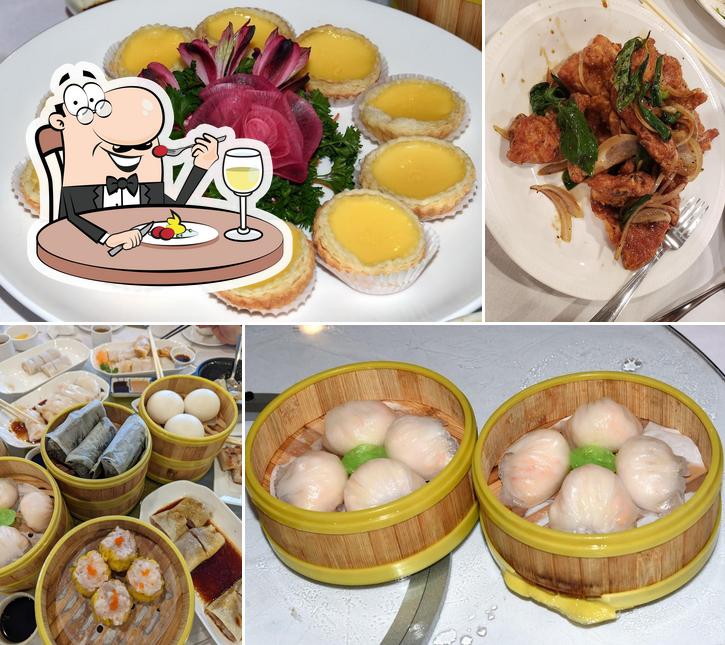The Shifting Sands Of The Chinese Auto Market: BMW, Porsche, And The Path Forward

Table of Contents
The Rise of Domestic Brands and Increased Competition
The Chinese auto market is no longer dominated solely by international brands. Domestic automakers have made significant strides, posing a formidable challenge to established players.
The Threat from Local Competitors
The rise of Chinese electric vehicle (EV) manufacturers like BYD, Nio, and Xpeng is a major disruptor. These companies are leveraging technological advancements, producing high-quality vehicles at competitive prices, and catering specifically to the preferences of Chinese consumers.
- Successful Chinese EV Models: BYD's Han and Tang EVs offer compelling ranges and features at prices significantly lower than comparable BMW and Porsche models. Nio's battery swapping technology and sophisticated user interface are attracting a younger, tech-savvy clientele. Xpeng's advanced driver-assistance systems (ADAS) are also gaining traction.
- Feature Comparison: While BMW and Porsche boast superior brand heritage and perhaps more refined interiors in some models, Chinese brands are rapidly closing the gap in terms of technology and performance, often at a more affordable price point. This directly impacts market share, eroding the dominance previously held by international luxury brands.
- Impact on Market Share: The increasing market share captured by domestic brands demonstrates a clear shift in consumer preference and necessitates a strategic response from BMW and Porsche.
Navigating the Competitive Landscape
To maintain competitiveness, BMW and Porsche are adopting several strategies:
- Localization Efforts: Both brands are investing heavily in localization, tailoring models to meet specific Chinese consumer demands. This includes offering unique color options, interior designs, and even specific features not available in other markets. Marketing campaigns are also being localized to resonate with Chinese culture and values.
- Technological Innovation: BMW and Porsche are accelerating their development of electric vehicles and incorporating advanced driver-assistance systems. They are also focusing on connectivity features and in-car entertainment tailored to the preferences of the Chinese market. Investment in research and development within China itself is also increasing.
- Targeted Marketing: Understanding the nuances of Chinese consumer preferences is crucial. BMW and Porsche are utilizing targeted marketing campaigns through digital channels and influencer collaborations to reach their desired demographic effectively.
Economic Slowdown and Shifting Consumer Preferences
The Chinese economy, while still growing, is experiencing a slowdown, significantly impacting the luxury car market. Simultaneously, consumer preferences are evolving rapidly.
Impact of Economic Uncertainty
Economic uncertainty directly affects luxury car sales. Reduced consumer spending translates to lower sales figures for brands like BMW and Porsche.
- Luxury Car Sales Statistics: Recent data reveals a decline in luxury car sales in China, indicating the impact of the economic slowdown. This decline is more pronounced in higher price segments.
- Economic Indicators: Correlation between key economic indicators like GDP growth, disposable income, and luxury car sales shows a direct link. A slowing economy generally leads to a decrease in luxury purchases.
Evolving Consumer Demands
Chinese consumers are increasingly demanding electric vehicles, advanced technology features, and personalized experiences. This necessitates a fundamental shift in the strategies employed by luxury automakers.
- Trends in Consumer Preferences: Younger generations prioritize sustainability and technological sophistication. Personalized customization options are also gaining popularity.
- Responding to Preferences: BMW and Porsche are responding by accelerating their EV launches in China and offering a wider range of customization options to cater to individual consumer tastes. Focus on digital experiences and connected services is also key.
Navigating Regulatory Hurdles and Emission Standards
China's increasingly stringent emission standards pose significant challenges to traditional automakers. Meeting these standards requires substantial investment in electrification and sustainable practices.
Stricter Emission Regulations and their Impact
China's ambitious emission reduction targets are forcing automakers to adapt rapidly. Failure to comply can result in production delays, sales restrictions, and significant financial penalties.
- China's Emission Standards: Details about specific emission standards (e.g., CAFE standards) and their timeline need to be clearly understood and adhered to.
- Impact on Production and Sales: Meeting these regulations necessitates significant investment in research and development, impacting production costs and potentially affecting sales prices.
The Importance of Electrification and Sustainability
The transition to electric vehicles is paramount for success in the Chinese market. Sustainability is also gaining increasing importance among environmentally conscious consumers.
- BMW and Porsche's EV Strategies in China: Both brands are expanding their EV offerings in China, investing in local production facilities, and developing models tailored to the market's specific needs.
- Investments in Infrastructure and Sustainability: Investment in charging infrastructure and promoting sustainable manufacturing processes are key to meeting both regulatory requirements and consumer expectations.
Conclusion
The Chinese auto market presents significant challenges but also considerable opportunities for brands like BMW and Porsche. Successfully navigating this dynamic landscape requires a multi-pronged approach focusing on adapting to evolving consumer preferences, embracing electrification, and effectively competing against the rise of domestic brands. By understanding the shifting sands of the Chinese auto market and strategically addressing the issues outlined above, these luxury automakers can better position themselves for future success. To stay ahead in this fiercely competitive market, continuous adaptation and innovation are key. Learn more about the latest trends in the Chinese automotive industry and strategies for success by conducting further research into the specific market dynamics.

Featured Posts
-
 Pregnancy Cravings And Chocolate The Unexpected Inflation Story
Apr 30, 2025
Pregnancy Cravings And Chocolate The Unexpected Inflation Story
Apr 30, 2025 -
 Richmond Man Sentenced In Gun Case Involving 6 Year Old
Apr 30, 2025
Richmond Man Sentenced In Gun Case Involving 6 Year Old
Apr 30, 2025 -
 Over The Counter Birth Control Increased Access And Its Implications
Apr 30, 2025
Over The Counter Birth Control Increased Access And Its Implications
Apr 30, 2025 -
 Essential Michael Jordan Facts A Quick Overview
Apr 30, 2025
Essential Michael Jordan Facts A Quick Overview
Apr 30, 2025 -
 Document Amf Valeo 24 Mars 2025 Reference 2025 E1027024
Apr 30, 2025
Document Amf Valeo 24 Mars 2025 Reference 2025 E1027024
Apr 30, 2025
